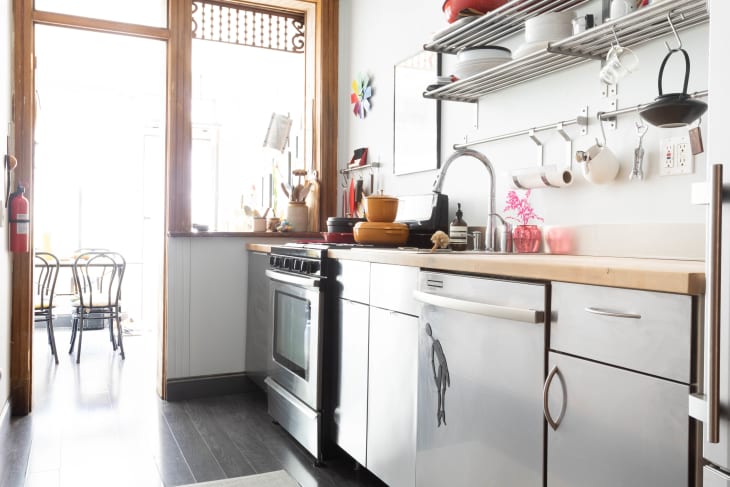The One Thing Safety Experts Always Do in Their Kitchen Before Leaving for Vacation (And Now I Do, Too!)

You never know what emergencies you need to be prepared for at home, especially if you’re not there to handle it. My family recently experienced a water emergency shortly after we purchased our home in Tennessee — a leak in our kitchen destroyed our cabinetry and flooring even though it was discovered shortly after it began. If it hadn’t, like if we’d been on vacation, the damage would have been far more extensive. And for that, I’m grateful.
Nervous about water damage, I recently purchased some water alarms, on the advice of a plumber, to put under our sinks. They detect any water leak and sound an alarm so the leak can be addressed before significant damage occurs. This gives me some peace of mind. But, if we’re not home, the alarm won’t do much good.
What Home Safety Experts Say You Should Always Do Before a Trip
I reached out to a few safety experts and asked them what they suggested people do before they leave on vacation to keep their homes safe from disaster. I didn’t mention my water worries because I didn’t want to sway their suggestions in any way — but, tellingly, much of the experts’ advice centered on water-related incidents and how to prevent the pervasive damage they can cause.
Michael Wood, head of network delivery at U.K.-based Rightio, which provides emergency home repair services, suggests the following big picture solution: “Turn off the water supply.”
Wood explains the importance of this easy step: “One of the most crucial steps to ensure your kitchen is safe before leaving for a trip is to turn off the main water supply. This simple action can prevent potential flooding from leaks or burst pipes, which can cause significant damage to your home while you’re away.” (If you’re not sure how to turn off your water supply, learn more here.)
Courtney Klosterman, home insights expert at Hippo, the home insurance group focused on proactive coverage, also offers some water-centric tips. She explains that “water-related incidents, such as leaks, burst pipes, or flooding can quickly wreak havoc on your property in your absence.” Not only that but “undetected water damage can lead to costly repairs, structural issues, and mold growth.”
Luckily, Klosterman shared some preventative tips for preventing water damage while out of town. “You can take measures to identify water leaks with plumbing maintenance, regular gutter and downspout cleaning, and water leak detection devices,” she says. She suggests inspecting your plumbing system for “leaks or weaknesses” and outlines the following: “Turn on all plumbing fixtures and turn them off. Your fixture may show signs of a leak if it forms water droplets at the spout or the handle two to three minutes after you shut them off. If water droplets continue to form, it’s likely due to internal damage, which requires cartridge and O-ring replacements.” At this point, you can either look up how to perform the necessary repairs or call in a plumber.
In addition to checking your plumbing, especially in the kitchen, Klosterman recommends installing water leak detection devices and smart water sensors that can alert you of any “unusual water activity” in your home. “These devices can send notifications to your smartphone for immediate action.” These are similar to the more simple devices I mentioned installing under my sink earlier, with the critical difference that they send alerts to your phone so you’re notified of incidents even when you’re not home.
There’s so much to do when you’re getting ready to leave for vacation, but taking the time to prevent water damage to your kitchen and home is well worth the effort — and can potentially save you huge headaches and thousands of dollars. After all, peace of mind is priceless.
Buy: Govee WiFi Water Sensor 3-Pack, $43.99
This post originally appeared on The Kitchn. See it there: The One Thing Safety Experts Always Do in Their Kitchen Before Leaving for Vacation (And Now I Do, Too!)